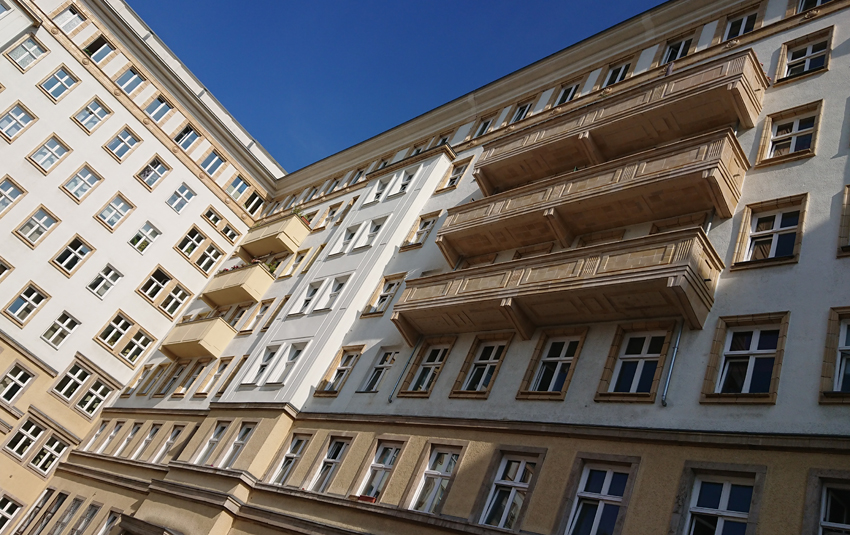2019-08-12 | The Future of Property Investment in Berlin : our three-part guide

The Future of Property Investment in Berlin : our three-part guide
Berlin, 12.08.2019 - With strict regulation, rent caps, rent freezes and almost daily press articles about tenant protests against landlords, is the city becoming a “hostile environment” for property investors and what should current and future investors be doing?
In this three-part blog article series we set out explain the investment landscape in Berlin and offer some advice.
Part one: Berlin: A “Hostile Environment” for property investors?
Berlin, by almost any measure, is an unusual city, but when you view it from the perspective of its property market, it is pretty much unique. Berlin is not just the capital of Germany but also the capital of tenants. What other city at the heart of a major world economy would you find over 80% of households renting?
Berlin too is the capital of the large-scale housing owner. After the sell-off of public housing stocks to raise revenue for the city finances in the 90’s and 00’s, these private-sector operators - whose names you see emblazoned on the sides of apartment blocks across the city - enjoy a dominance of the Berlin housing market that they do not have in any other major city in Germany.
Behind this lies the broader and longer → social and political story of Berlin housing. Historically low rental and property prices resulting from the decades of being a divided city also helped create the current ownership landscape – plus the fact that owning your own home is → nothing like as important for most Germans as it has become for the average person in the UK for instance. Renting for life is fine.
The long catch-up from these depressed property prices that Berlin has been playing – resulting in 10%+ annual price rises over the last few years – has fed into the “Us v Them” narrative of tenant against landlord that is playing out in the city, with both politicians and the media happy to make easy targets out of those who have invested in the Berlin housing market.
In this context it is hardly surprising that the recent and current Berlin city administrations have sought to introduce ever-tougher restrictions on what people who own property here can do – you probably would too if over 80% of your voters were tenants.
On top of the ten years of guaranteed tenancy rights that many enjoy if their property is sold, you can add the rent cap or brake (→ Mietspiegel) that has been in operation in recent years, the increasing areas of the city covered by “social conservation area” (→ sozialen Erhaltungsgebieten) rules that prevent older properties having modern facilities such as elevators or balconies added and, most recently, the announcement of a planned law to freeze rents completely for the next five years.
While these all play well politically in the short-term, they do not tackle or even seek to address the → underlying structural problems Berlin’s housing sector faces. You cannot provide more and better housing unless you allow it to be built and then rented at a sustainable level. You also cannot expect owners to renovate apartments that have not been touched since reunification and still often lack basic facilities such as central heating or proper bathrooms when rents cannot be increased to reflect the investment required to do so.
But the resistance of tenants to almost any proposal to increase rents that have barely changed in the last 20 years should also not come as a surprise when you look at both the average wage and wage growth over the same period. Berlin is a very tough place to make a living that would allow people to pay a sustainable rent and while it might also be proclaimed as → “The Capital of Start-Ups”, you cannot base the entire economy of a major city on people sitting in coffee shops working on their laptops.
Whether the → rent freeze proposals are legal is still an open question. Landlords and their associations have already said they will challenge it, and it is not certain that the Berlin city authorities have the power to introduce them. Whether this will lead to the scrapping of the new regulations or only to modifications is an open question. By the time the courts decide though, they will have already had time to make a substantial impact.
Although these issues are all beyond our immediate control, they are important to understand when you are either an existing investor in Berlin considering whether to sell your investment property, or a prospective one thinking about buying in Berlin. We will take a more detailed look at both of these in parts two and three.


